Please Follow us on social media >>>>
A Quick Guide on How to Start Mini-Importation Business Today
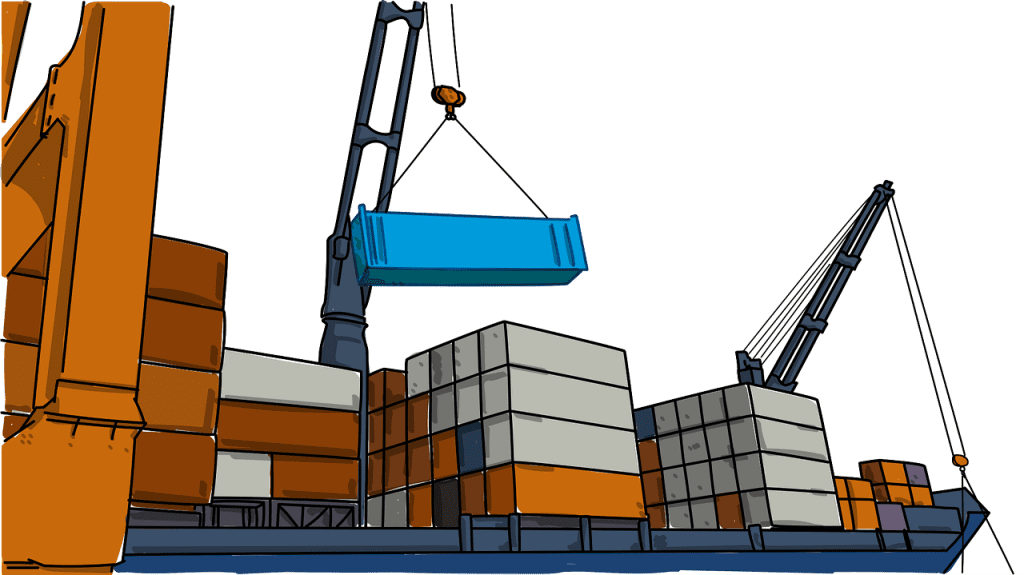
The Ultimate Guide to Mini-Importation: Tips, Tricks, and Strategies
You are interested in starting a mini-importation business but not sure where to start. I know what it is like.
But I am here to remove all the troubles and confusion from this profitable business. With this guide to mini-importation and the tips, tricks, and strategies I will show you, you can and will successfully launch your mini-importation business and grow it to new heights.
This article is part of a complete and advanced series of everything you need to know about buying goods from another country and selling them in another location.
Get access to “MINI-IMPORTATION DEMYSTIFIED, Complete A to Z Guide On Mini-Importation” This is only for those serious about starting a business of their own.
MINI-IMPORTATION DEMYSTIFIED
You can do this as a small side business while maintaining your 9 to 5 job. Students and home mums are a good fit for mini importation as it requires only the use of the internet, traceable address, computer, or mobile phone to do everything in importation.
And also a means to pay your foreign vendors securely. This is often the challenge with most importers. But with the right guidance, you too can pay your merchants yourself.
There are a few steps to make your importation business successful. These include the following:
- the desire to start a business
- market research to determine what is in high demand
- getting suppliers
- how to pay your suppliers
- Make sure you buy only quality goods
- shipping and deliveries
- marketing your goods
- advertisements and marketing
In all of the above, you will notice that your job starts with research. So, let us discuss that. But before that, let me tell you who I am:
My name is Echez, and I am a senior content writer, an entrepreneur, and a digital marketer. If you need a push on starting your online business today, book a call now.
Echez O’ Ford
Relate to Mini-Importation:
- Ultimate Guide to Finding Reliable Suppliers for Mini-Importation in Africa
- Importation Business Terms and Acronyms: a Comprehensive Glossary.
- How to Know a Reliable Supplier for Mini-Importation Business.
- From China to Your Doorstep: How to Ensure a Smooth Shipping Process
- How to Pay Foreign Vendors Without the Naira Cards
Conduct Research on Mini-Importation
The first step to successful mini-importation is to conduct research. You need to identify profitable products and niches that will sell well in your target market.
Researching suppliers and manufacturers is also crucial, as you need to find reliable and trustworthy sources for your products.
You don’t want to import goods simply because you fall in love with the items. No, that will be the easiest way to fail. Your goal is to look for goods that are not common, that people need. I tell my students to always find out what people around them are willing to buy.
If for example, you have male friends who are fanatics in dressing, you may consider pitching them with some nice watches, shoes, and quality shirts that are not common.
On the other hand, if you live around schools, higher institutions, and colleges, what will the students be willing and able to buy? The latest hair extension, the latest mobile phone, the latest handbags? These are some of the ways to figure out what can be of interest to people.
Before you jump into researching, you need to look around to see what is in high demand. Are there people where you work, where you go to church, or where you go to school that form a demographic? Do they have a liking for a particular item that is in high demand? These are the starting points for your research.
A simple rule of thumb that I preach is:
NEVER IMPORT FIRST AND THEN LOOK FOR A MARKET TO SELL IT.
Echez O’ Ford
GET A MARKET READY AND WILLING TO BUY, THEN IMPORT
Tools to research mini-importation
Several tools can be used to conduct research in the mini-importation business. In addition to looking at your immediate environment, you can use the following methods and resources:
- Google Trends: Google Trends is a free tool that allows you to see how often a particular search term is entered into Google’s search engine over a certain period. This can give you insight into the popularity of a particular product or niche. For example, during the Easter celebrations, there were a lot of searches going on globally for Easter-related keywords and products. As an importer, this gives you a sign that you should look in that direction.
- Use Alibaba to research mini-importation: Alibaba may not be the place for you as an importer if you are just starting. This is because it is a leading online marketplace for wholesale products. It’s a great tool for researching suppliers and finding products to import. Start by browsing through the website to see what products are popular, read reviews from other buyers, and even connect directly with suppliers. On the other hand, if you are into importation with a lot of capital and want to buy in large quantities, Alibaba is a good place for you.
- ImportGenius: If you need something premium to speed up your research, my recommendation will be ImportGenius. It is a paid tool that provides access to import and export data. This data can be used to research the competition, identify potential suppliers, and gain insights into market trends. Use this only if you are in the serious importation business.
- Jungle Scout: Jungle Scout is a tool that allows you to research products on Amazon. You can use it to see how well a particular product is selling, what the competition is like, and get ideas for products to import. Why is this important? Amazon is a go-to place for searches with buyer intent. That means people who use or land on Amazon are usually people who have the intention to buy. They are not just surfing the web aimlessly. So using Amazon as a research tool can be very helpful.
- Facebook Ads Manager: Facebook Ads Manager is a great tool for researching your target audience. You can use it to see what types of products people are interested in, what their demographics are, and even what ads your competitors are running. Most times, when people do not make sales on their goods, it is because they don’t understand how Facebook ads work.
The above tools can help you gain insights and make informed decisions about what products to import and how to market them.

The next step is to find suppliers. I have a resource on this. It is called “Global Sources“. In it, I talked about how to source suppliers using only one platform.
How to Find the Right Suppliers for Mini-Importation
Finding the right suppliers can be a challenge, especially when there are so many scammers and fraudulent suppliers out there. You don’t want to settle for every supplier you see only because their price appears to be cheap.
You want a supplier that has the following:
- Your supplier must have a reputation for honesty
- and must have been in business for a while.
- A supplier that has your interest at heart
- Able and willing to help you achieve your business goals
- You need a supplier that ships your goods as fast as possible
- A supplier that has good customer reviews and a relationship
There are two basic ways to get the right supplements.
- Use a sourcing agent.
- Do the sourcing yourself.
Either way, it takes a bit of time and resources to land a supplier that is ready and willing to work with you.
To find reliable suppliers, I look for those who have been in business for a while and have a proven track record. I also read reviews and testimonials from other buyers to ensure the supplier I am considering is legit.
I will focus on how you can do it yourself. But if you want to use sourcing agents, here are some ways to go about it:
- Madeinchina.com
- Spreaditglobal
- chrisvicmall
Finding good suppliers by yourself is not as hard as it sounds. Below are a few tips to help you get ahead with sourcing suppliers for your mini-importation business.
Attend trade shows:
Attending trade shows is a great way to meet suppliers face-to-face and discuss their products and services.
Look for trade shows in your industry or niche and plan to attend to meet potential suppliers. These days, some trade shows are done virtually.
Join industry groups:
Joining industry groups and associations can also help find suppliers. These groups often have member directories or supplier lists that you can access.
Request samples:
Before committing to a supplier, request samples of their products to ensure they meet your standards. The suppliers will be willing to send you something if you show evidence of seriousness and that you are buying a considerable quantity.
This will also give you a chance to test the products and ensure they’re of high quality. I like this approach a lot. It puts off the scammers, as they are usually not willing to send you any samples.
Do your due diligence:
Sometimes, people might recommend suppliers to you. There is nothing wrong with that. But you must conduct your due diligence on potential suppliers to ensure they’re legitimate and reliable.
Check their business registration, look for any negative reviews or complaints, and verify their bank account information.
When suppliers ask you to migrate to another website to complete transactions instead of the official site where you saw them, this could be a sign to be careful.
Never should you make payments to personal bank accounts. If anything goes wrong, it is difficult to have an amicable resolution.
Negotiate terms with your suppliers:
Once you’ve found a supplier you’re interested in working with, negotiate the terms of your agreement. Many new importers do not know this is part of the business. No matter what you see on the product page, you can always negotiate things with your suppliers.
This includes the following:
- pricing,
- minimum order quantities,
- shipping and delivery, and
- payment terms.
Be clear about your expectations and ensure you’re both on the same page before finalizing the agreement. You will be surprised at how much yielding the suppliers are willing to make for you. My advice to you is that you learn how to negotiate with suppliers.
Now let us talk about shipping your goods and merchandise.
Shipping and delivery in mini importation

You cannot do mini-importation without shipping your merchandise. Understanding the shipping process is crucial, as it can impact your business’s efficiency and profits.
The norm is to use the shipping method of the supplier. But this is not always the best option. You can succeed in using a supplier of your choice, a supplier that meets your unique requirements.
To maximize efficiency and savings, weigh your options in shipping. Some of the things to consider:
- consider using a third-party logistics provider (3PL)
- See if you can work with a supplier that offers free shipping.
- Look for a supplier that can consolidate your merchandise
- and team up with other buyers to consolidate your goods. This will help give you all some negotiating power.
Any of the above options will work for you depending on your requirements. Endevor to read customer reviews about any supplier you intend to use.
In shipping your goods, it could either be air freight, sea shipping, or express shipping. Either one works. If you have weighty cargo, you may want to consider sea shipping as this will reduce the overall cost.
If on the other hand, your goods are lightweight and fragile and you need it to land as soon as possible, air freight is the way to go.
While shipping, you will come across terms like:
- KG: this is the weight of your goods, it is usually used for air freight
- Cubic meters: unlike the kg, this is about size and volume. Preferably, if you have a sizable cargo, using sea shipping and calculating in cubic meters is the best.
- Customs, clearing demurrage, etc
The above are just some of the importation terms you can pay attention to. If you are serious about knowing what stands for what, you must check out this topic: Importation Business Terms and Acronyms: a Comprehensive Glossary This is an ideal resource for every importer whether you are new in the business or not.
Pay Attention to Customs Regulations
Customs regulations are a critical path to understand in mini importation, as they can impact the time and cost of importing products.
I have heard people complain about goods seizures, impounded goods, and the high cost of clearing. To avoid many of these heartaches, it’s important to research customs requirements and regulations for the countries you’re importing from as well as the countries your goods are going. Also, ensure you’re complying with all necessary regulations.
Non-compliance can result in costly penalties and delays.
Eches O’ Ford
Pricing Strategies for Mini Importers
The possibility of making a profit while minimizing risk is the sole goal of venturing into importation. To achieve this, you will have to avoid underpricing your products, as this can lead to low profits or even losses.
On the other hand, overpricing can deter customers and lead to slow sales. Research your market and competitors to determine the optimal pricing strategy for your products.
If the goods am importing and selling are in high demand and there are very few people selling them, the law of supply and demand will be on my side.
This will make me conveniently choose a price I will sell. But if on the other hand, there are so many people selling the same thing, I will be forced to bring my price to the barest minimum to get by.
And this explains more, the reasons you should only go for goods that are in high demand.
Next, let us talk about strategies to market your goods. It is only when you make sales that you will make a profit. And if you do not spend time and resources on marketing, your sales will suffer.
Marketing Strategies for Mini Importation Business:
You need to reach your target audience and build a strong brand that resonates with them. To do this, utilize the power of social media, email marketing, and other online advertising channels to reach your audience and drive sales.
Depending on what type of goods you are importing and selling, you can start marketing to your immediate environment. Start selling to co-workers, fellow students, church members, and people who render services where you work or stay.
Spread the word out for people to know what you have in stock. You can start by using your Whatsapp status to post what you have and build a buzz around it. Your friends can patronize you, they can refer people to you, and they can even repost what you have for others to see. But make sure you are selling quality goods.
Quality Control Quality
To have the reputation of selling nothing but quality goods starts when you are sourcing for it. With good quality control, you will be in a position to guarantee customer satisfaction and manage returns and complaints. Pay attention to some of the points below:
- Establish quality control measures with your suppliers to ensure the products meet your standards.
- Address customer complaints and returns quickly and efficiently to maintain a positive reputation.
- Be clear with your suppliers on what you want
- Arrange to inspect initial production in person. Though sometimes this might not be feasible. But discussing the possibility will let your supplier know you are serious about business.
- Have an inspection agent inspect if you cannot physically do it yourself.
There you have all the tips, tricks, and strategies you need to launch and succeed in your mini-importation business.
With determination and the desire to learn along the way, you can launch and grow a successful mini-importation business.
The basic thing is to conduct research to identify profitable products and niches, find reliable suppliers, understand shipping and delivery, customs regulations, pricing, and marketing strategies, and establish quality control measures.
I have added 5 more things you should pay attention to in mini-importation. These five things will help keep you above the rest.
Other Factors to Help You Succeed in Mini Importation:
In addition to the tips and strategies mentioned above, there are a few more things to keep in mind when starting a mini-importation business:
- Keep an eye on currency exchange rates. Currency exchange rates can impact the cost of your imports and your profits. Always know about exchange rates and consider timing your senses to take advantage of favorable rates.
- Consider Insurance: Importing products can have risks, such as lost or damaged products during shipping. It may be cheaper overall to purchase insurance to protect your business in case of mishaps.
- Start small and scale up. Do not wait until you have everything and a ton of money before you start. Starting small and testing the waters is a smart approach when starting a mini-importation business. Begin with a small batch of products and gradually scale up as you gain experience and confidence.
- Stay up-to-date on trends and regulations. The importation industry is constantly evolving, and it’s crucial to stay up-to-date on the latest trends and regulations. Subscribe to industry newsletters and follow relevant blogs and social media accounts to stay informed.
- Network with other importers. Networking with other importers can be beneficial, as you can learn from their experiences and gain valuable insights.
- Attend trade shows and conferences, and join online communities to connect with other importers.
Starting a mini-importation business can be daunting, but with the right tips, tricks, and strategies, it can be a rewarding venture.
As I said earlier, my name is Echez O’ Ford, I am a click away from helping you with your importation business. If you have more questions, please drop them in the comment section and I promise to answer you as soon as I see them.




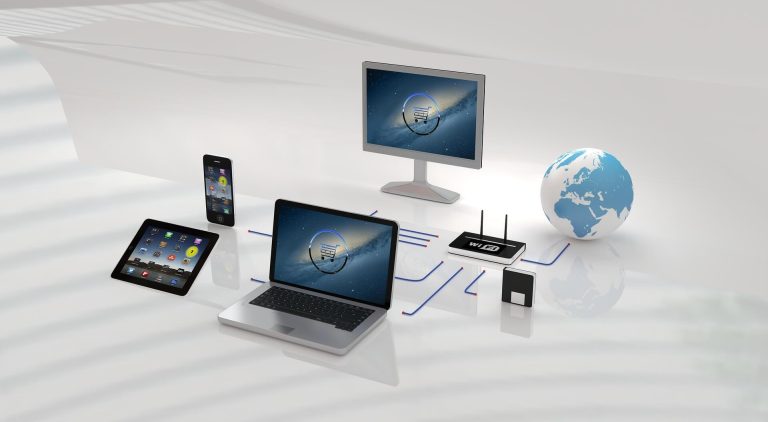

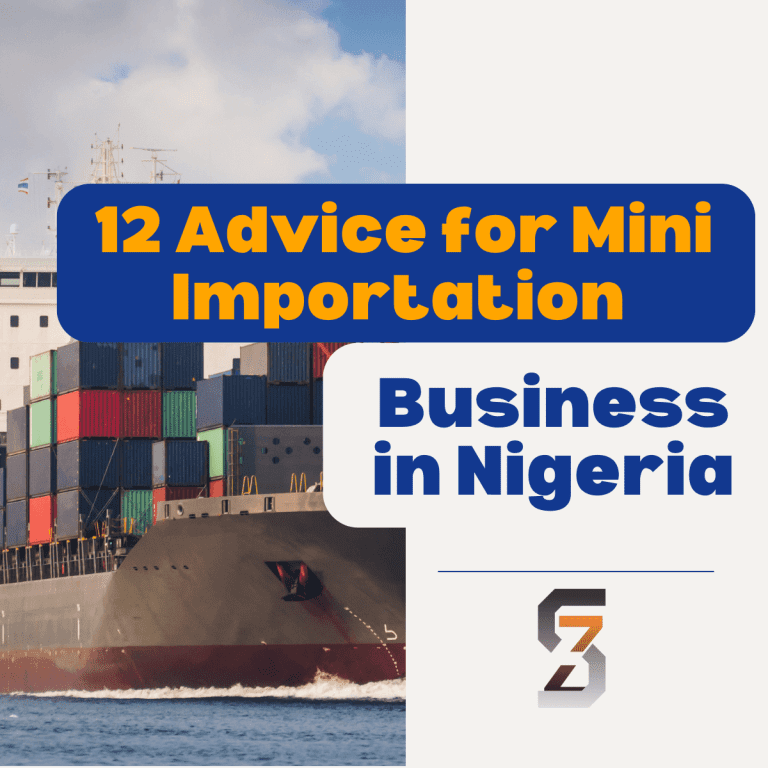
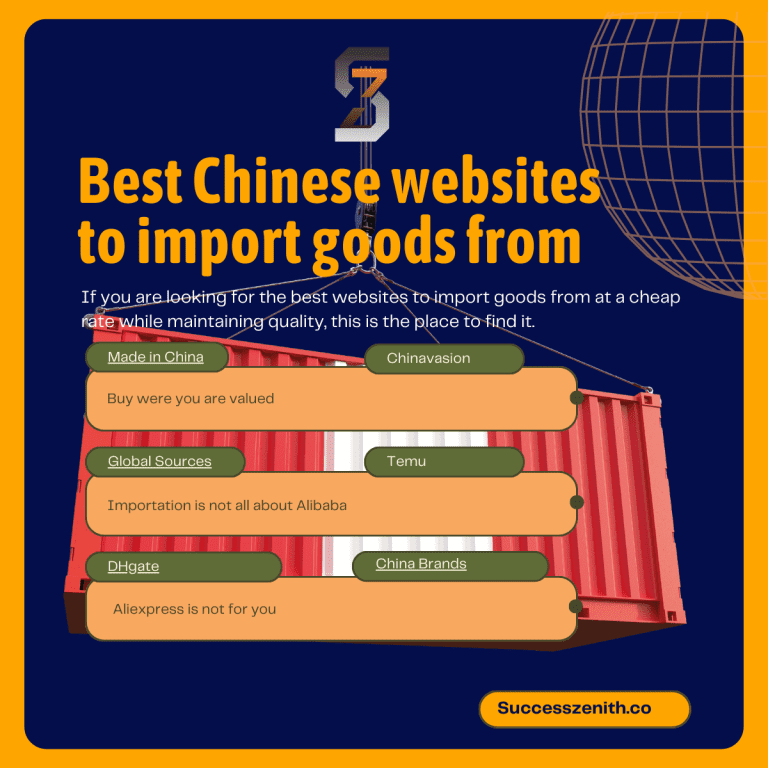
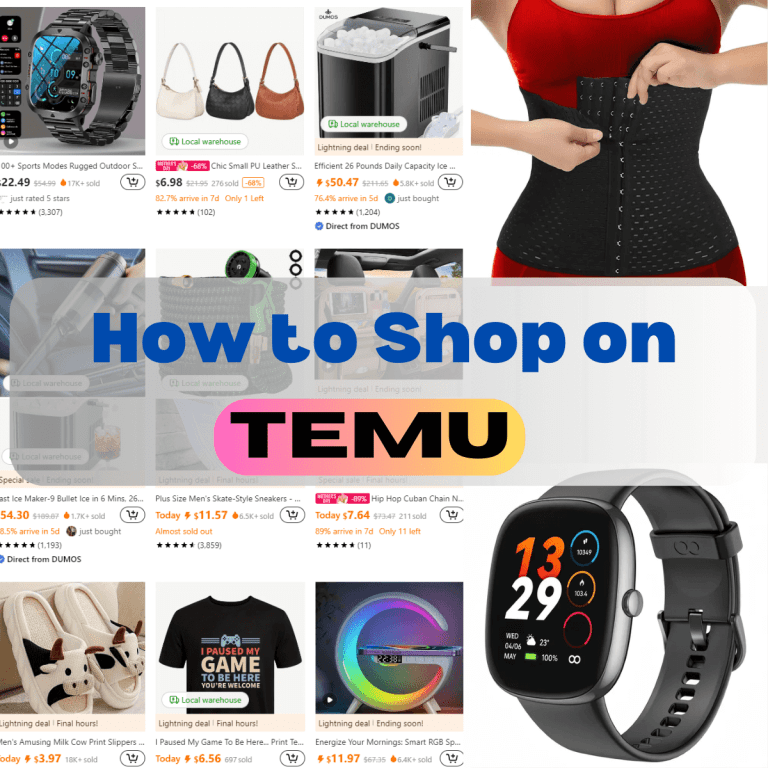

[…] If you want to get your feet wet on how to start an importation business, I advise you to check out this article on “The Ultimate Guide to Mini-Importation, Tips, Tricks, and Strategies“ […]
[…] you’re an aspiring entrepreneur, you need a quick guide to be an importer, an experienced business owner, or someone looking for a low-capital business to do, this guide […]
[…] sure to check it out. But if you would rather prefer a Quick Guide on How To Start Mini-Importation Today, then this second article is for […]
[…] The above is a quick rundown on what you need to start a mini importation business. If you are serious about it, go check out this quick guide on how to start importing goods by yourself today. […]
[…] This article is part of an all-round series on Mini importation. Make sure to read the rest of the series too. But if you are serious with your importation business, go read this Quick Guide on How to Start Mini-Importation Business Today […]
Wow, superb blog structure! How lengthy have you
ever been running a blog for? you make running a
blog glance easy. The whole look of your website is
excellent, let alone the content!
[…] article is part of an advanced tutorial on Mini importation. Make sure to see the rest in this […]
Impressive posts! My blog 71N about Thai-Massage also has a lot of exclusive content I created myself, I am sure you won’t leave empty-handed if you drop by my page.
I took a look at your site, great layout and amazing images. Although I couldn’t understand the language, but well done all the same.
Wow that was odd. I just wrote an very
long content but after I clicked submit my comment didn’t show up.
Grrrr… well I’m not writing all that over again. Anyway, just
wanted to say superb blog!
my page: Nichole